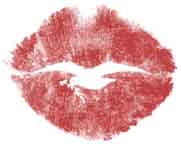
"HONI"
|

"HONI"
|
|
"The honi is a Polynesian greeting in which two people greet each other by pressing noses and inhaling at the same time. This is a very honorific as this represents the exchange of ha--the breath of life, and mana--spiritual power between two people. This act and the concepts behind it are very unusual to western audiences and care should be taken to explain the spirituality and sacredness of this simple act of greeting." Source: Renee Bishaw, Hawaiian Greeting/Protocol
"
Pi'o ka wailani
"In ancient times Hawaiians greeted each other by touching each other at the bridge of the nose (honi) therefore "experiencing and exchanging the breath of life". The coming of the foreigner (white man) and the hand shake as a greeting created the word "ha 'ole" meaning without the breath of life)" Source: Sam Monet
From the song, I Want to Learn to Speak Hawaiian by Johnny Noble: "Honi
kâua wikiwiki
Hawaiian Music and Hula Archives and Jack London's The Kanaka Surf
"In an opening allegory, Dr. Kekuni Blaisdell passionately described Wâkea, the sky father, producing the misty clouds and rain that seep down the Ko'olau Mountains and likened it to semen impregnating Papa, the earth mother. Later he encouraged all the attendees to "honi," which is to touch noses and inhale the other's "ha" or essence." Source: Using Hawaiian Culture to Improve Health
"The ancient custom of honi when meeting another included touching foreheads together, inhaling, kissing the other on the cheek or lips, hugging and then exhaling. It is said that this custom enabled the ancients to detect who visited their homes hours after they left by the distinctive body odor of that person. We've also read that the kiss used to be on the lips but changed to the cheek or eliminated when the tuberculosis epidemic hit Hawai`i. " Source: Hawaiian Etiquette by Wai`anae students
Kindy Sproat & hânai (adopted) son, Josh, on honi: "Interviewer (Hal): After a few tunes we start talking about all sorts of things Hawaiian. I'm curious about that Island word, aloha, emblazoned on everything from beach bags to jumbo jets. Josh: "It's a real powerful word, even though they use it a lot. It's like the direct translation is 'may you have ever-lasting breath.' Yeah, and so that's a real deep meaning that the Hawaiians use. That's why when they came up to say aloha, they did their honi which is a nose-to-nose thing so they could breathe in each other's breaths." Hal: "So when you came to someone, you put your nose against theirs and breathed?" Josh: "Yeah, forehead and nose. It's the ancient Hawaiian greeting that they used, called the honi. Kind of the Hawaiian kiss." Kindy: "Exchange of breath." Hal: "So you don't take aloha very lightly." Kindy: "Aloha is a very serious word and if you don't mean it, don't say it. You see, alo is of deity. It's like a forward call to deity. Ha is the breath of life and it goes way down in." Josh: "Actually, the translation of Hawaii is ha-vai-`i...the breath of life and the water of life...of I the creator. They named this whole thing that 'cuz it was so beautiful and luscious and they had everything they needed to survive." " Source: Minnesota Public Radio's Savvy Travelers article by Hale`boy Pukuni`ahi (Hal Cannon) & Teresa Jordan. |